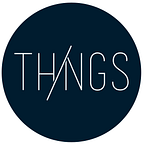Continuing the Quest for More Trustable Tech
Six years ago, the ThingsCon community set out on a mission: to help create a human-centric & responsible IoT. An important part of this mission was to create a reliable, simple way for consumers to determine whether a connected device meets their privacy and security needs.
Why? By 2020, an estimated 10 billion IoT products will be online in our offices, our public squares, our kitchens, and our bedrooms. What kind of future would we have if these devices weren’t secure?
A powerful proof of concept
Today, two months after the launch of the Trustable Technology Mark, we’ve built a powerful proof of concept: A trust assessment for IoT can be done. More importantly, it can be done cost-effectively, and in a way that supports and incentivizes state of the art practices regarding privacy & data practices, transparency, security, stability, and openness. And it’s compatible and complementary with other great initiatives, like Better IoT, The Digital Standard, and OSHWA.
We also learned there’s a real appetite for and interest in an initiative like this. “Think of the Trustable Technology Mark as an ‘organic’ sticker for connected devices,” Fast Company reported last December.
The first Trustmark carrying products are already on the market
The first products that carry the Trustmark are already on the market. And they represent categories that are notoriously hard to design with privacy in mind, like a smart voice assistant and connected toys. These pioneers prove that it’s possible to think differently, and put users’ rights first. No sketchy data mining here!
It’ll grow from here
We’ve just launched, and it’s been a great proof of concept. We’ll see the real impact in a year or two, when the next 1–2 generations of products come to market that are designed with the Trustmark in mind. Until then, we’ll keep hosting events to discuss the opportunities of the Trustmark, the importance of the underlying principles, and how to build for them.
What’s next? Better tools & other domains
For the short term, we’ll develop tools to support the design process. We have been working with the brilliant Dries de Roeck on this, who has been prototyping the first iteration of tools for this specific purpose already.
In parallel, and beyond the short term, we’ll see how our research and our findings can help support and inform other areas. We’ve been getting a surprising amount of interest from policy makers about applicability to the domain of Smart Cities and Artificial Intelligence. This is exciting; I’m convinced the underlying principles of the Trustmark can be adapted for other contexts and have meaningful impact. After all, the Trustmark is a means to an end: It’s a way to make technology more trustworthy — one product or policy at a time.
ABOUT THE TRUSTABLE TECHNOLOGY MARK
The Trustable Technology Mark is a trustmark for the Internet of Things (IoT): It empowers consumers to make informed decisions & enables companies to prove their connected products are trustworthy. The Trustable Technology Mark is a ThingsCon initiative. It was developed with support from the Mozilla Foundation in the form of a Mozilla Fellowship for project lead and ThingsCon co-founder Peter Bihr.
ABOUT THINGSCON
ThingsCon is a global community and event platform for IoT practitioners. Its mission is to foster the creation of a human-centric and responsible Internet of Things (IoT). Through events, research, publications and other initiatives, ThingsCon provides practitioners with an open environment for reflection & collaborative action.
ABOUT MOZILLA
Mozilla believes the internet must always remain a global public resource, open and accessible to all. Our work is guided by the Mozilla Manifesto. Mozilla focuses on fueling the movement for a healthy internet by supporting fellows working on key internet issues; connecting open internet leaders at events like MozFest; publishing critical research in the Internet Health Report; and rallying citizens around advocacy issues.
